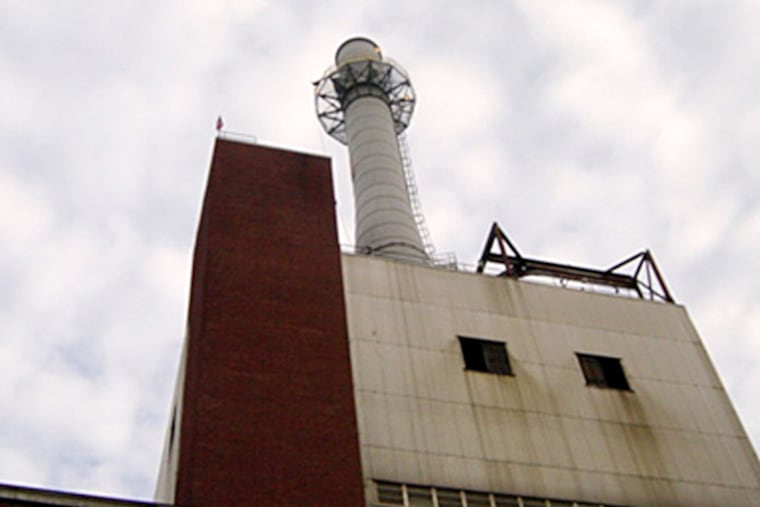Exelon will retire oil-fired Schuylkill Generating Station in Grays Ferry
Exelon Generation plans to retire its 58-year-old Schuylkill Generating Station in Grays Ferry at the end of the year, the latest Eisenhower-era power plant to bow out in response to a changing energy environment.

Exelon Generation plans to retire its 58-year-old Schuylkill Generating Station in Grays Ferry at the end of the year, the latest Eisenhower-era power plant to bow out in response to a changing energy environment.
Increasingly, the oil-burning plant at 2800 Christian St. has been little used, said Tim Wirth, a spokesman for Exelon's power-generation unit in Kennett Square.
"It's older, it's not used very frequently, and it no longer makes economic sense," Wirth said. In the last year, the plant's 166-megawatt main unit was fired up only once to serve the regional power grid.
The plant was built by Peco Energy Co., then called Philadelphia Electric, which retained it in 1987 after selling off the adjacent Grays Ferry Station at 2600 Christian St. that produces heat for the Center City steam loop.
Veolia Energy, current owner of the district heating system, said the closure would not affect its 300 customers.
The Schuylkill plant's 12 employees have been offered retirement packages or the option to transfer to other Exelon plants.
"We have an excellent relationship with Exelon and are working together to relocate those people who will be affected by the retirement," said Emil Meyer, president of electrical workers' union Local 614, which represents power-plant employees.
The Schuylkill plant is among seven aging fossil-fuel plants Exelon operates in the Philadelphia area as "peaking units," which respond to periods of highest electricity demand or which go online to balance power on the grid. Exelon will still operate two smaller oil-combustion turbines on the Schuylkill site that are able to fire up quickly to meet power needs.
Last year, Exelon, which assumed ownership of Peco's old power plants, shut down its Cromby Generating Station in Phoenixville, and in May, it retired the last of two giant coal units at its Eddystone plant on the Delaware.
The older fossil-fuel plants cannot compete economically and environmentally with cleaner-burning natural-gas plants, whose market share is growing because of new supplies of gas produced from discoveries such as Pennsylvania's Marcellus Shale.
The plants also do not fit with Exelon's corporate goal of reducing, displacing, or offsetting all its carbon emissions by 2020.